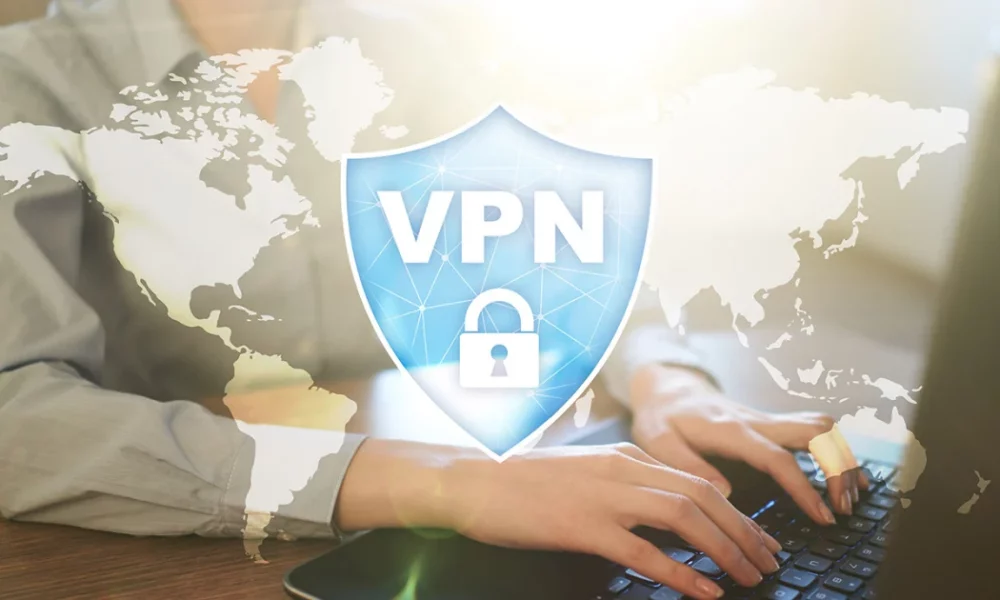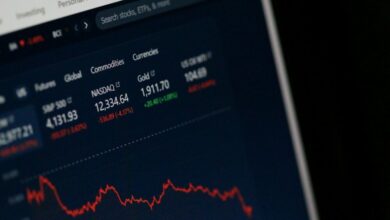Why You Need a VPN: Top Reasons Explained

In today’s digital age, safeguarding your online presence is more crucial than ever. A Virtual Private Network (VPN) is a powerful tool that offers numerous benefits, from maintaining your anonymity to securing your data on public Wi-Fi networks. Whether you’re looking to bypass geo-restrictions, avoid government censorship, or simply protect your personal information from prying eyes, a VPN is an essential addition to your cybersecurity toolkit. Read on to discover the top reasons why you need a VPN.
Key Takeaways
- VPNs help maintain your anonymity by masking your IP address and encrypting your data.
- Using a VPN ensures secure connections on public Wi-Fi, protecting your data from hackers.
- VPNs allow you to bypass geo-restrictions, giving you access to content from different regions.
- They help avoid government censorship, allowing unrestricted access to information.
- VPNs protect your personal data from being tracked by advertisers and other third parties.
1. Maintain Anonymity
Even with the latest encryption and privacy tools, your Internet Service Provider (ISP) can still monitor your online activities. A VPN helps you maintain anonymity by masking your IP address and encrypting your internet connection. This means your ISP cannot track your browsing history or sell your data to third parties.
Using a reddit best VPN ensures that your online actions are private and secure, protecting you from unwanted surveillance and data collection.
2. Secure Public Wi-Fi
Public Wi-Fi networks, found in places like cafes, airports, and shopping malls, are notoriously insecure. Using a VPN on these networks is essential to protect your data from potential hackers. Without a VPN, your sensitive information, such as bank details and login credentials, can be easily intercepted by cybercriminals.
A VPN encrypts your internet connection, making it nearly impossible for anyone to eavesdrop on your online activities. This encryption ensures that even if a hacker manages to access the network, they won’t be able to decipher your data.
- Encrypts your data
- Protects against Man-in-the-Middle (MITM) attacks
- Ensures safe browsing on unsecured networks
Always use a VPN when connecting to public Wi-Fi to safeguard your personal information and maintain your privacy.
3. Bypass Geo-Restrictions
Using a VPN allows you to bypass geo-restrictions imposed by various websites and online services. Many platforms restrict access to their content based on your geographic location. By masking your IP address and making it appear as though you are browsing from a different region, a VPN enables you to access content that would otherwise be unavailable in your area.
Benefits of Bypassing Geo-Restrictions
- Access streaming services from different countries
- View websites and services blocked in your region
- Enjoy a broader range of online content
With a fast VPN, you can experience the internet without borders, accessing a world of content from anywhere.
4. Avoid Government Censorship
In many parts of the world, government authorities impose strict controls on internet access, limiting what citizens can view and share online. Countries like China, Russia, and Iran are known for such restrictions, blocking access to popular social media platforms, news websites, and other online services.
A VPN can help you bypass these government-imposed blocks, allowing you to access restricted content freely. However, it’s important to note that using a VPN in these regions can come with risks, as some governments have also taken steps to block VPN services. Despite these challenges, many major VPN providers continue to offer solutions that enable users to connect to their servers and maintain access to the open internet.
Using a VPN can be a crucial tool for maintaining internet freedom in regions with heavy censorship, but always be aware of the potential risks involved.
5. Protect Personal Data
Using a VPN is essential for safeguarding your personal information online. Sensitive data such as work emails, payment details, and location information are constantly being transmitted over the internet. Without protection, this data is vulnerable to exploitation, especially on public networks.
A VPN encrypts your data, making it unreadable to anyone who doesn’t have the decryption key. This means your browsing activity, personal information, and communications are kept private and secure from prying eyes.
By using a VPN, you ensure that your personal data remains confidential, even when using unsecured public Wi-Fi networks.
In summary, a VPN provides a crucial layer of security that helps protect your personal data from being intercepted and misused.
6. Prevent Advertiser Tracking
Advertisers use various techniques to track your online activities, gathering data to create targeted ads. This can be intrusive and compromise your privacy. A VPN helps prevent this by masking your IP address, making it difficult for advertisers to follow your digital footprint.
Benefits of Using a VPN to Prevent Tracking
- Enhanced Privacy: Your real IP address is hidden, making it harder for advertisers to track you.
- Reduced Targeted Ads: With less data available, advertisers can’t create personalized ads.
- Improved Security: VPNs encrypt your data, adding an extra layer of protection against tracking.
How VPNs Work Against Ad Tracking
When you connect to a VPN, your internet traffic is routed through a secure server. This process masks your real IP address and replaces it with the IP address of the VPN server. As a result, advertisers can’t easily track your online activities.
Using a VPN is a simple yet effective way to maintain your privacy and avoid the constant barrage of targeted advertisements.
7. Save Money Online
Using a VPN can help you save money when shopping online, booking hotels, flights, and holidays. Online retailers often use dynamic pricing, which adjusts prices based on your location and browsing habits. By masking your IP address with a VPN, you can access different regional prices and find better deals.
How to Save Money with a VPN
- Compare Prices: Use a VPN to switch between different countries and compare prices for the same product or service.
- Clear Cookies: Ensure you clear your browser cookies to avoid being tracked and shown higher prices on subsequent visits.
- Use Incognito Mode: Combine your VPN with your browser’s incognito mode to further prevent tracking and dynamic pricing.
Always practice website safety and avoid online shops without HTTPS. Adding extra encryption with a VPN can protect you from hackers and ensure your transactions are secure.
8. Secure Remote Work
Remote work has become more prevalent than ever before. With a VPN, remote employees can securely access company resources from anywhere, provided they have an internet connection. This not only offers greater flexibility but also ensures that sensitive company data remains protected, even on public Wi-Fi networks.
A VPN adds an extra layer of encryption, making it an ideal choice for remote workers who need to access confidential information. This encryption hides all data, providing safe access to office networks while keeping sensitive information secure.
Using a VPN for remote work is essential for maintaining privacy and security, especially when dealing with sensitive company data or connecting to corporate resources from various locations.
9. Safe Peer-to-Peer Networking
Peer-to-peer (P2P) networking, including torrenting, has legitimate uses such as accessing public domain works or downloading Linux distributions. However, some Internet Service Providers (ISPs) block sites with BitTorrent links, even if they offer legal content. Using a VPN allows you to bypass these blocks and access P2P networks safely.
A VPN encrypts your internet traffic, making it difficult for hackers to intercept your data. This is crucial when sharing files over P2P networks, as unprotected traffic can be a breeding ground for potential hacking.
- Security: VPNs provide an additional layer of security, ensuring your data remains private.
- Access: Bypass ISP restrictions and access legitimate P2P content without hassle.
- Anonymity: Maintain your anonymity while sharing files, protecting your identity from prying eyes.
A VPN is essential for anyone who frequently uses P2P networks, ensuring a secure and private connection.
10. Improve Internet Speed
Sometimes, while browsing the internet, you may experience an unexplainable drop in speeds. This can lead to buffering of your favorite show or cause an interruption during an important Zoom meeting. This usually happens when your ISP starts throttling your bandwidth to manage network congestion. Throttling is sometimes implemented for certain websites.
ISPs use a technique called “traffic shaping” to identify data passing through its nodes and prioritize accordingly. Banking, online shopping, businesses, and other important data are given a faster route than gaming, video streaming, and standard browsing. However, ISPs cannot identify encrypted data, so it cannot be prioritized. Consequently, you will often find that encrypting your connection with a VPN has a small speed improvement for standard domestic use.
Activating a VPN might slow down your internet speed slightly due to the additional steps like encryption and connecting to another server. However, premium VPNs are designed to mitigate any slowdowns, and there are several useful tips to speed up your VPN connection until any lags are barely noticeable.
If you use public Wi-Fi a lot, worry about your ISP and other third parties snooping on your online activity, or just want to access streaming content from somewhere else in the world, a VPN can help. On the other hand, if reduced browsing speeds frustrate you, this might not be the tool for you. But it’s worth researching what the speed impacts actually are.
Conclusion
In today’s digital age, protecting your online privacy and security is more important than ever. A VPN offers a simple yet powerful solution to safeguard your personal data, maintain your anonymity, and access content freely from anywhere in the world. Whether you’re using public Wi-Fi, shopping online, or streaming your favorite shows, a VPN can provide the peace of mind you need. By encrypting your data and masking your IP address, it ensures that your online activities remain private and secure. So, if you haven’t already, now is the time to consider investing in a reliable VPN service to enhance your online experience.
Frequently Asked Questions
What is a VPN and how does it work?
A VPN (Virtual Private Network) encrypts your internet connection and routes it through a server in a location of your choice. This masks your IP address and makes your online actions virtually untraceable.
Why should I use a VPN?
Using a VPN enhances your online privacy, secures your data on public Wi-Fi, allows you to bypass geo-restrictions, avoid government censorship, and prevents advertisers from tracking your online activities.
Can a VPN improve my internet speed?
In some cases, a VPN can improve your internet speed by bypassing throttling imposed by your ISP. However, this is not always guaranteed and can depend on various factors like server location and network traffic.
Is using a VPN legal?
Yes, using a VPN is legal in most countries. However, some countries have restrictions or bans on VPN usage. Always check the local laws before using a VPN in a new location.
Can I use a VPN on all my devices?
Most VPN services offer apps for a variety of devices, including smartphones, tablets, computers, and even routers. Check with your VPN provider to ensure compatibility with your devices.
Will a VPN drain my battery?
Using a VPN can have a minor impact on your device’s battery life, but it is generally minimal. The level of impact can vary depending on the VPN app and your device’s specifications.





